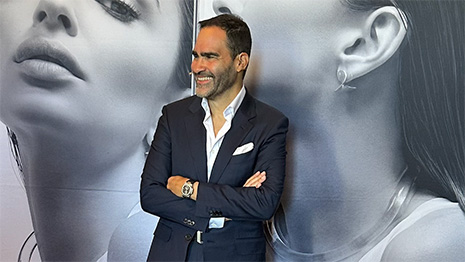Luxury Unfiltered: How high-end brands lose their spark – and how they can get it back

The Luxury Identity Crisis: Reigniting the Spark in a Sea of Sameness
A Disconnection with Modern Luxury Consumers
The luxury industry is at a crossroads. While some brands flourish, others grapple with declining relevance, trapped in a "sea of sameness." This identity crisis stems from a fundamental disconnect between brands and their clientele, particularly the influential Gen Z demographic.
These discerning consumers crave more than just luxury goods; they seek inspiration, meaning, and authentic experiences. Many brands, however, cling to outdated strategies and generic marketing, failing to meet these evolving expectations.
Global studies reveal a growing trust deficit, with nearly half of luxury consumers now deeming luxury goods overpriced and uninspiring. This perception gap between value and cost signals a critical need for change.
The Power of Storytelling and Innovation
To reclaim their relevance, luxury brands must embrace the power of storytelling. Crafting authentic narratives that resonate with modern clients is key to unlocking meaning and emotion.
However, most brand stories suffer from a lack of originality, mirroring their competitors. In this sea of sameness, differentiation is crucial for survival.
Innovation must extend beyond product development to encompass digital engagement. Social media platforms like Instagram and TikTok have become vital stages for connection and inspiration, exemplified by brands like Louis Vuitton, which masterfully uses these platforms to showcase its craftsmanship and heritage.
"In my opinion, it's the same problem with politicians or luxury brands that the people or the customer or the voters, they have the feeling that we don't speak the same language anymore,” observes top influencer Thomas Derksen. He continues, "Social media has become so important that no brand can ignore it anymore. But sometimes I have the feeling that a lot of brands, a lot of boards, members of boards, they don't understand social media."
The Critical Role of Transformative Training
Transformative training is another essential tool often underutilized by luxury brands. Traditional sales techniques are no longer sufficient. Today's luxury clients expect personalized engagement and the emotional resonance of a compelling brand story.
Training needs to go beyond mechanics, empowering staff to become true brand ambassadors. This requires equipping teams with a deep understanding of high-net-worth individuals’ psychology and the ability to deliver exceptional experiences at every touchpoint.
As Daniel Langer notes, “You don’t want to be the ones who, in the eyes of clients, waste their time.”
The Rise of Experiential Luxury and Technology
The rise of experiential luxury reflects a broader shift towards prioritizing unique experiences over material possessions. Brands must create meaningful interactions that transcend traditional retail transactions.
Technology plays a pivotal role. Virtual try-ons, immersive product displays, and interactive brand experiences enhance the customer journey, particularly important in a landscape where many luxury experiences fall short.
The Path Forward: Authenticity and Client-Centricity
To reignite their spark, luxury brands must prioritize authenticity and client-centricity. This involves deeply understanding client expectations and values, coupled with effective communication across all touchpoints.
Langer’s 4E luxury framework—Emotion, Experience, Engagement, and Exclusivity—provides a strategic roadmap for creating extreme value. By putting the client at the center, brands can foster deep emotional connections and deliver extraordinary experiences.
The current identity crisis presents both a challenge and an opportunity. Brands that successfully integrate compelling storytelling, innovative engagement strategies, and transformative training will be best positioned to lead in this new era of luxury.
The future of luxury belongs to those who can create meaning, inspire desire, and deliver exceptional experiences in today's dynamic landscape.